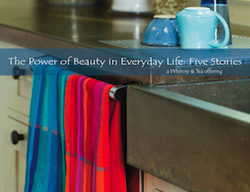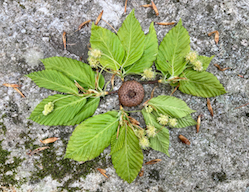One of my high school English teachers instructed us not to use the adjectives “nice” and “interesting.” According to my teacher, to describe someone as nice didn’t tell you anything about that person. To say a book is interesting is too vague.
As I write about beauty in the everyday, I worry that I overuse the adjective “beautiful” and that it loses its meaning and becomes a catch-all for “I like it.” This concern got me wondering what the word means to me.
My 1991 McGraw-Hill edition of Webster’s College Dictionary defines beautiful as “having beauty; delighting the senses or mind” and beauty as “the quality present in a person or thing that gives intense aesthetic pleasure or deep satisfaction to the mind or senses.”
As I ponder my use of the word “beautiful,” I remember taking a trip to Joshua Tree National Park in southeastern California. I was quite taken with the desert landscape — the quirky Joshua trees, the cholla cacti that looked like they had been burned, the spiny stems and red flowers of the ocotillo shrubs. I was fascinated by these plants that could grow with so little water. When I returned home, I raved about the place using words like “amazing,” “intriguing,” and “incredible.” Yet I didn’t describe it as beautiful, even as I encouraged everyone to visit the park.
However, when we drove through Utah on I-70, I insisted that we stop at every scenic overlook. I took photograph after photograph. We even made a significant detour to visit Bryce Canyon National Park. I found the muted orange and pink rock formations dramatic, amazing and beautiful.
Both deserts delighted my mind and senses, so why did I call one beautiful and not the other?
Beauty may enter through the mind and senses, but it settles in the heart. Joshua Tree was prickly and spiky. It sparked my curiosity, my sense of wonder, but it did not say “Sit and rest a while.”
Sometimes when I see something, I have an immediate response and I blurt out, “Wow, that’s beautiful.” I don’t always know exactly what it is about the sight that elicited this positive response, but when I pay attention, I notice that I exhale and my body relaxes. Sometimes I smile. This is my body’s way of saying yes. My experience has moved beyond the mind and senses to a deeper place.
There is so much beauty in this world and it takes many forms — objects, landscapes, sounds, fragrances, movements, actions and more. What I describe as beautiful will be different from what you call beautiful.
Stopping to ask the question: “What is it that makes this beautiful to me?” helps me to know myself better. Is it the colors? The shapes? The textures?
Then in situations where the beauty isn’t immediately obvious to me, I am more willing to ask, “Is there beauty here? What is it?”
If beauty is about a heart connection, then who wouldn’t want more beauty in their everyday lives?
My invitation to you: Now it’s your turn. What do you mean when you call something beautiful? I’d love to hear.



Join the conversation